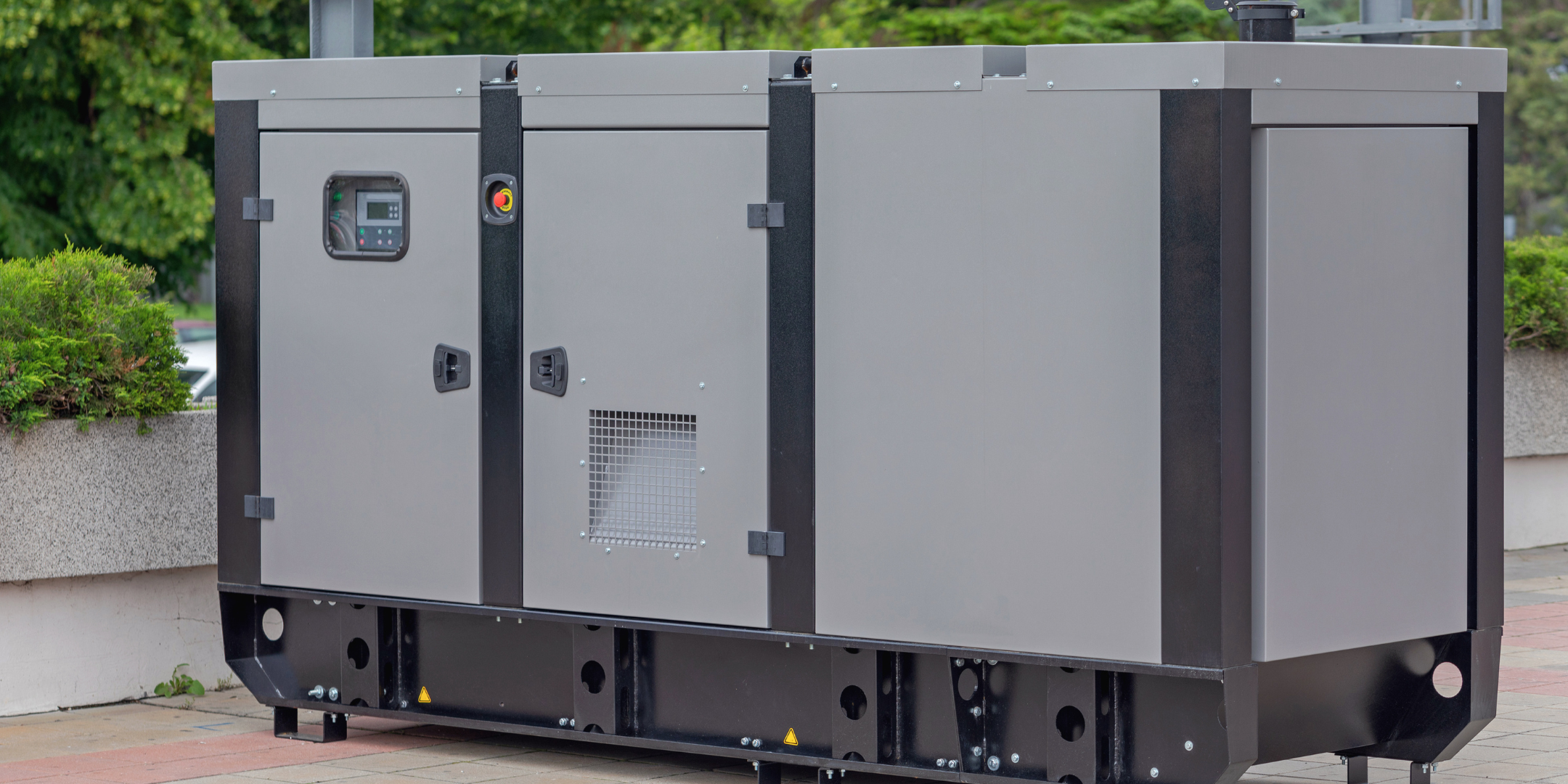
Power outages can be frustrating and costly, leaving you without essential systems like heating, cooling, or refrigeration when you need them most. Deciding whether a whole-house generator is worth the investment can feel overwhelming, especially when weighing the costs and benefits.
refrigeration when you need them most. Deciding whether a whole-house generator is worth the investment can feel overwhelming, especially when weighing the costs and benefits.
With over 16 years of experience in HVAC and backup power solutions, we’ve helped homeowners like you make confident decisions about protecting their homes.
By the end of this article, you’ll know the benefits, drawbacks, and long-term value of a whole-house generator, so you can decide if it’s the right choice for your home.
4 Benefits of a Whole-House Generator
1. Seamless Power During Outages
Power outages can bring your daily life to a halt, but a whole-house generator ensures your essential appliances and systems keep running smoothly. These generators automatically activate within seconds of a power failure, eliminating the need for manual setup or intervention.
appliances and systems keep running smoothly. These generators automatically activate within seconds of a power failure, eliminating the need for manual setup or intervention.
Key Benefits Include:
- Heating and Cooling Systems: Ensures your home remains safe from extreme temperatures during summer heat waves or winter storms.
- Refrigerators and Freezers: Keeps food fresh, saving you from the hassle and expense of replacing spoiled groceries.
- Medical Equipment: Provides life-saving power for essential devices like oxygen machines or CPAP units.
- Sump Pumps and Security Systems: Protects your home from flooding and keeps your security systems operational for peace of mind.
Example: Imagine a severe winter storm knocks out power for days. With a whole-house generator, your family can stay warm, comfortable, and safe without interruption.
2. Convenience and Peace of Mind
Whole-house generators eliminate the hassle of setting up and managing a portable generator during a power outage. Permanently installed and wired directly to your home, these systems activate automatically when the power goes out. This hands-off convenience is a game-changer for busy households.
Why This Matters:
- No scrambling to find extension cords or fuel during an emergency.
- Perfect for homeowners who frequently travel and want assurance that their home remains functional while they’re away.
- Reliable performance during extended outages, especially in areas prone to hurricanes, ice storms, or grid issues.
Tip: Many modern generators include remote monitoring systems, so you can check your generator’s status via a smartphone app, adding an extra layer of convenience.
3. Increased Home Value
A whole-house generator isn’t just a practical investment—it’s also a smart financial decision. Adding one to your home can increase its resale value and make it more appealing to potential buyers.
to your home can increase its resale value and make it more appealing to potential buyers.
Here’s How It Adds Value:
Attractive Selling Point in High-Outage Areas: Buyers in regions with frequent storms or power grid issues will appreciate the added security and convenience of a generator.
Competitive Edge in the Market: Homes with whole-house generators stand out, particularly in areas where power reliability is a concern.
Long-Term Upgrade: Many buyers view a generator as a durable and practical feature that enhances the overall functionality of a home.
Studies show that a whole-house generator can add as much as 50% of its cost to your home’s resale value, or up to 5% total resale value, especially in areas prone to outages.
4. Long Lifespan
Whole-house generators are built to last, offering 15-30 years of dependable service when properly maintained. This longevity makes them a durable, long-term solution for backup power.
Factors That Contribute to Lifespan:
- Routine Maintenance: Regular oil changes, filter replacements, and inspections ensure your generator remains in top condition.
- Quality Installation: Professional installation minimizes wear and tear and ensures optimal performance.
- Fuel Type: Natural gas and propane generators often have longer lifespans than diesel due to cleaner combustion.
3 Drawbacks of a Whole-House Generator
While whole-house generators offer invaluable benefits, there are a few potential downsides to consider before making the investment. Let’s break these down further to help you make an informed decision.
1. Upfront Costs
Whole-house generators come with a significant upfront cost, ranging from $5,000 to $12,000 for the unit and an additional $2,500 to $7,000 for installation, including permits and labor.
and an additional $2,500 to $7,000 for installation, including permits and labor.
Other expenses, like a concrete pad ($50 to $75 per square foot) or a transfer switch ($800 to $2,000), may also apply.
While the investment is substantial, financing options and the generator’s long lifespan (15-30 years) can help offset costs, along with the added value it brings to your home.
2. Fuel Dependence
Whole-house generators can run on natural gas, diesel, or propane, each with pros and cons:
- Natural Gas: Offers continuous fuel from a utility line, but depends on grid availability, which may fail during disasters.
- Propane: Flexible for homes without gas lines and stores on-site, but requires refills and costs more per gallon than natural gas.
- Diesel: Efficient and reliable for heavy use, but needs stabilizers for storage and produces higher emissions.
It’s important to choose a fuel type based on your home’s setup, access to resources, and maintenance preferences. With careful planning and regular upkeep, any of these options can provide dependable backup power that keeps your home safe, comfortable, and prepared for unexpected outages.
3. Maintenance Requirements
Regular maintenance ensures your generator is ready when you need it.
This includes annual oil changes and filter replacements ($100–$300), battery checks and replacements every few years ($100–$200), and professional inspections to catch potential issues early ($150–$500).
Diesel generators may need extra cleaning due to residue buildup, and neglecting upkeep can lead to costly repairs or a shorter lifespan.
Simplify upkeep by creating a maintenance schedule or enrolling in a service plan to keep your generator running reliably. While these costs add up, the peace of mind and long-term value often outweigh the drawbacks.
Is a Whole-House Generator Worth the Cost?
Deciding whether a whole-house generator is worth the expense depends on several key factors:
1. Frequency of Power Outages
If you live in an area where outages are common due to storms, wildfires, or grid issues, a generator’s ability to keep your home running and your family safe makes it a valuable investment.
ability to keep your home running and your family safe makes it a valuable investment.
2. Preventing Costs from Power Loss
Extended outages can lead to unexpected expenses, such as:
- Spoiled food in refrigerators and freezers.
- Frozen pipes that can cause water damage during winter.
- Hotel stays for comfort and safety during prolonged outages.
Example: A three-day power outage could cost a family hundreds of dollars in wasted food, home repairs, and accommodations. A generator prevents these issues entirely.
3. Long-Term Benefits
A generator can save you money over time by avoiding damage, reducing stress during emergencies, and providing reliable power. It also adds value to your home, which can help you recover some costs if you decide to sell.
With these benefits, a whole-house generator often proves to be a practical and worthwhile investment for many homeowners.
Is a Whole-House Generator Worth It?
When you first started reading, you might have been unsure whether investing in a whole-house generator was worth the cost. Now, you have a clearer understanding of the benefits, potential drawbacks, and long-term value to help guide your decision.
was worth the cost. Now, you have a clearer understanding of the benefits, potential drawbacks, and long-term value to help guide your decision.
With over 16 years of experience in HVAC and home power solutions, we’re here to help you find the generator that meets your specific needs. Next, explore your options further by reading our articles on How Much Does a Whole-House Generator Cost? and Natural Gas vs. Diesel Generators: Pros and Cons.
By weighing the pros and cons, you’ll be prepared to make an informed decision and enjoy reliable power and peace of mind for years to come.
Daphne Hunt holds a bachelor's degree in English and Mass Communication and has a lifelong passion for writing. She thrives on using her skills to craft compelling pieces that inform, inspire, and connect with readers.
Topics:

